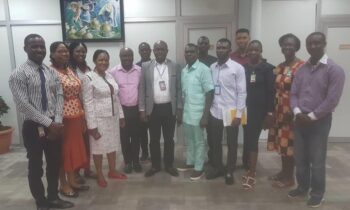
Fifteen Nigerian academics and research interns have been inducted into a one-year sabbatical and research internship programme at a ceremony held recently at the Port Harcourt Headquarters of the Shell Petroleum Development Company of Nigeria Limited (SPDC).
The ceremony marks the resumption of the annual programme after it was suspended in 2021 following restrictions imposed because of the COVID-19 pandemic.
Drawn from eight Nigerian universities, the academics comprise three professors, two associate professors, and three senior lecturers on one-year sabbatical; while another seven research interns will conduct research in identified areas – including environment, health, oil spill remediation and community studies – and share their findings within the period of the programme with SPDC joint venture for application in the industry. The seven interns are participants who have been given placements to enable them to undergo the compulsory six months supervised internship, a requirement for the award of a master’s degree from the NNPC-Shell-sponsored Centre of Excellence in Geosciences and Petroleum Engineering at the University of Benin.
“We are glad that the SPDC – with support from our joint venture partners of NNPC Limited, Total Energies and Nigerian Agip Oil Company – has resumed this very important programme after the restrictions forced on us by the COVID-19 pandemic. These inductees continue a sabbatical and internship programme that started in 1980 and continues to form a key aspect of our effort to contribute to the development of higher education in Nigeria,” SPDC Director and Head of Corporate Relations, Mr. Igo Weli, disclosed.
Weli said, “This annual programme is of mutual benefit because SPDC JV obtains specialised services from the professors and senior lecturers, while they, in turn, acquire industry experience and exposure to new technologies that are then ploughed back to the university curriculum.”
Highlighting the benefits to the academia, professor of Ecotoxicology and Hydrobiology from the University of Port Harcourt, Mrs. Ijeoma Vincent-Akpu (who has been assigned to SPDC’s Environment Department), said of the programme, “I am excited about this opportunity to gain industry experience. I have assessed environmental impacts as a researcher working with the communities. During this sabbatical, I will now be able to assess impacts working with the industry. SPDC has a robust programme on environmental management and I am looking forward to an amazing learning experience.
Dr. Irom Bassey Okey from the Cross River University of Technology, Calabar, said, “I am also excited to be here because I have worked in the university environment all my career. Now, I have this great opportunity to deepen the research side of my career.”
The sabbaticals spoke of the eagerness to join SPDC’s work towards achieving the goal of providing energy solutions in a manner that will be environmentally responsible while they also gather hands-on experiences and knowledge.
Other sabbatical inductees are from Federal University of Technology, Akure; Alex Ekwueme Federal University, Ndufu Alike, Ikwo; Covenant University, Ota; Niger Delta University, Wilberforce Island; University of Benin, Benin City; and Ignatius Ajuru University of Education, Port Harcourt.
Also, two of the research interns from the Centre of Excellence, University of Benin, Okiemute Enaughe and Victoria Onoakpogbunuke Ovueferie, said the internship programme supports for the development of local talent and capacity in the petroleum industry in Nigeria.
Victoria said, “By providing hands-on experience and access to experienced professionals, it equips us with the skills and knowledge necessary to drive the industry forward.”
They pledged on behalf of other research interns to contribute creatively and to take advantage of learning opportunities provided.
The annual sabbatical and internship programmes help Nigerian academics and post graduate students to build industry knowledge and understanding in such fields as biodiversity, petroleum engineering, geophysics, environmental impact assessment, community and occupational health, oil spills remediation, social performance, and oil and gas exploration.





